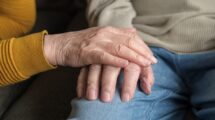Research has shown that oxytocin plays a crucial role in forming and maintaining friendships. When oxytocin levels are elevated, people are more likely to engage in social behaviors such as sharing personal information, offering help, and showing empathy towards others. In one study, participants who received a dose of oxytocin before engaging in a trust game were more likely to trust their partners and make more cooperative decisions.
Oxytocin not only strengthens existing social bonds but also helps in creating new ones. When we interact with others, oxytocin is released, leading to a sense of warmth and closeness. This hormone promotes feelings of trust, which is essential for building and maintaining relationships.
Furthermore, oxytocin has been shown to reduce levels of stress and anxiety, which can often hinder our ability to connect with others. By promoting relaxation and reducing fear responses, oxytocin helps to create a positive environment for social interactions.
The impact of oxytocin on friendships and trust has been studied extensively in both humans and animals. In fact, research has shown that animals who are given oxytocin are more likely to form social bonds and show behaviors that are indicative of trust.
In conclusion, oxytocin is a powerful hormone that plays a vital role in forming and maintaining social bonds. By promoting feelings of trust, empathy, and connectedness, oxytocin helps to strengthen friendships and create a positive social environment. The next time you hug a friend or engage in a meaningful conversation, remember that it is oxytocin at work, helping to deepen your relationships and foster a sense of trust.































Add Comment